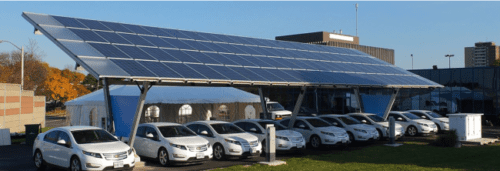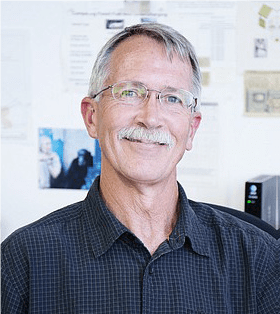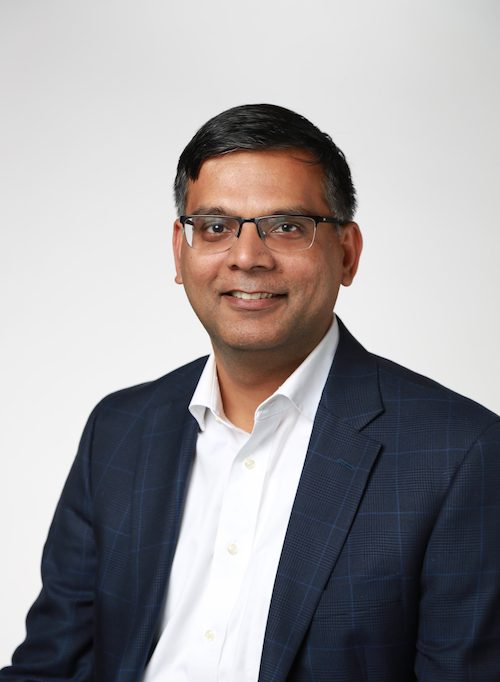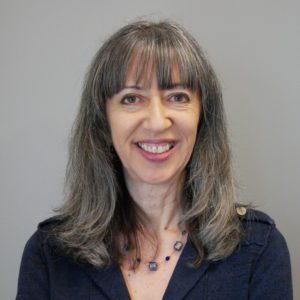
Webinar: Local clean energy generation or remote — who wins the battle? – Wednesday 23 Jun 2021
This one-hour webinar took place on 23 June 2021, at 11am PT.
- Presentation slides are available in PDFformat.
For decades, the electric power industry has touted a massive expansion of high-voltage transmission as essential to achieving ambitious clean energy targets. This approach – which involves moving remotely generated utility-scale solar and wind energy over great distances to population centers – is consistent with the traditional investor-owned utility (IOU) business model, which guarantees exorbitant profits from building transmission infrastructure.
But in the last decade, local distributed solar and battery storage have expanded significantly in California and other parts of the country. Currently, California has about 14,100 megawatts (MW) of utility-scale solar and 10,300 MW of distributed solar.
One reason for this expansion has been the steady decline in the cost of commercial and residential solar. In almost all cases, distributed solar is owned by the customer or a developer, not the utility. Customer-sited solar reduces utility volumetric energy sales, and thereby undercuts the traditional IOU business model. Without reform to this model, customer-sited solar poses a financial and existential threat to the IOUs’ revenue growth and long-term survival.
Around the country, high-stakes battles are being waged over the future of clean energy. These battles will determine whether the expensive transmission-dependent model favored by the IOUs will prevail – or whether the value proposition of customer-sited solar is too compelling to be derailed.
This webinar covered:
- The transmission expansion model versus customer-sited solar: financial winners and losers.
- The cost of transmission expansion associated with California RPS development and the cost of delivered renewable power: Tehachapi Renewable Transmission Project, Sunrise Powerlink, El Dorado-Ivanpah Transmission Project.
- Midwest case study: Benefits of high-penetration distributed solar relative to Xcel Energy transmission expansion.
- Innovative initiatives, such as New York Reforming the Energy Vision (NY REV), to adapt the utility business model to accommodate and incentivize customer-sited resources.
Presenters
 Bill Powers is a registered professional mechanical engineer in California and Missouri with over 35 years of experience in energy and environmental engineering. He has written numerous journal articles on the strategic cost and reliability advantages of local solar power versus large-scale, remote, transmission-dependent renewable resources, and he frequently testifies as an expert witness before the CPUC on alternatives to conventional power generation infrastructure. Mr. Powers is the author of the 2020 strategic energy plan for San Diego, Roadmap to 100 Percent Local Solar by 2030. He is a board member of the Protect Our Communities Foundation and is an international expert, assessing the environmental impacts of existing and proposed oil and gas projects in Peru, Ecuador, and East Africa. Mr. Powers holds a B.S. in mechanical engineering from Duke University and an M.P.H. in environmental sciences from the University of North Carolina at Chapel Hill.
Bill Powers is a registered professional mechanical engineer in California and Missouri with over 35 years of experience in energy and environmental engineering. He has written numerous journal articles on the strategic cost and reliability advantages of local solar power versus large-scale, remote, transmission-dependent renewable resources, and he frequently testifies as an expert witness before the CPUC on alternatives to conventional power generation infrastructure. Mr. Powers is the author of the 2020 strategic energy plan for San Diego, Roadmap to 100 Percent Local Solar by 2030. He is a board member of the Protect Our Communities Foundation and is an international expert, assessing the environmental impacts of existing and proposed oil and gas projects in Peru, Ecuador, and East Africa. Mr. Powers holds a B.S. in mechanical engineering from Duke University and an M.P.H. in environmental sciences from the University of North Carolina at Chapel Hill.

Rao Konidena of Rakon Energy LLC is an independent consultant focused on providing policy and testimony support, business development, and training in wholesale energy markets. Rao assists solar and storage developers and consumer and environmental advocate clients. Most recently, Rao was with Midcontinent ISO (MISO) as Principal Advisor for Policy Studies, working on energy storage and distributed energy resources. At MISO, Rao worked in management and non-management roles around resource adequacy, economic planning, business management, and policy functions. Rao volunteers as an engineering mentor for middle school students participating in the Future City competition. Rao is Co-President of the Finnish American Chamber of Commerce – Minnesota (FACC-MN), and on the Board of Ever Green Energy and Minnesota Solar Energy Industries Association (MnSEIA).
Moderator
 Rosana Francescato is the Clean Coalition’s Communications Director and leads the Transmission Access Charges (TAC) Campaign. Prior to joining the Clean Coalition, Rosana was Communications Director for Sunible, an online solar marketplace, and for MyDomino, an energy savings concierge service. In over 14 years at Adobe Systems, Rosana held senior technical editing and project management positions. She has written extensively on clean energy for publications like CleanTechnica, PV Solar Report, pv magazine, and Energy Central. While on the steering committee of the Local Clean Energy Alliance, Rosana helped evaluate shared renewables legislation in California. She has served on the boards of several clean energy nonprofits and volunteers installing solar with GRID Alternatives.
Rosana Francescato is the Clean Coalition’s Communications Director and leads the Transmission Access Charges (TAC) Campaign. Prior to joining the Clean Coalition, Rosana was Communications Director for Sunible, an online solar marketplace, and for MyDomino, an energy savings concierge service. In over 14 years at Adobe Systems, Rosana held senior technical editing and project management positions. She has written extensively on clean energy for publications like CleanTechnica, PV Solar Report, pv magazine, and Energy Central. While on the steering committee of the Local Clean Energy Alliance, Rosana helped evaluate shared renewables legislation in California. She has served on the boards of several clean energy nonprofits and volunteers installing solar with GRID Alternatives.
